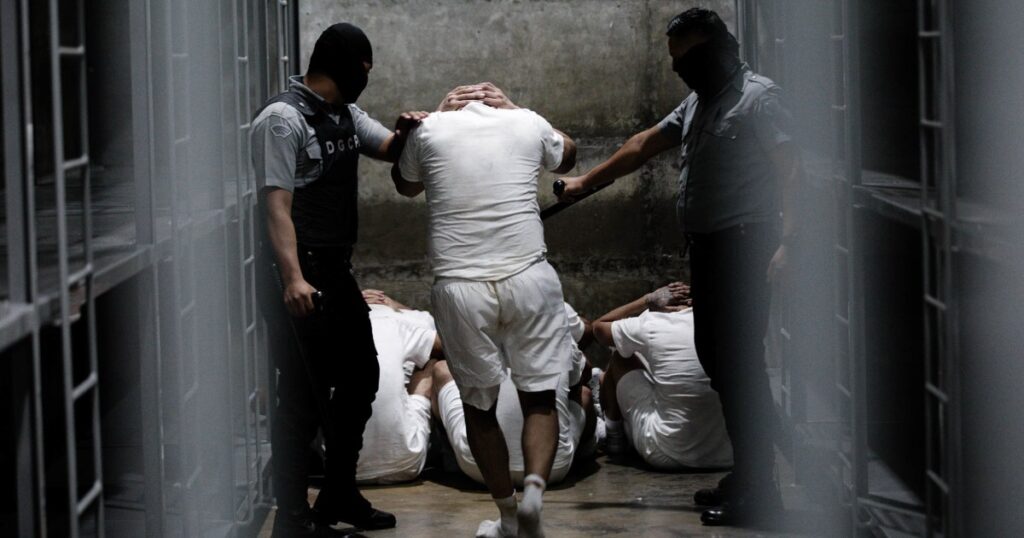
SAN SALVADOR – A Venezuelan man previously subjected to rare surgery has been deported to a high-security prison in El Salvador, raising concerns about his health and legal rights.
Immediate Impact
Mariela Villamizar is deeply worried about her son, Wladimir Vera Villamizar, who is currently held incommunicado at the Center for the Confinement of Terrorism (CECOT) in El Salvador. Vera, a 33-year-old welder from western Venezuela, had recently undergone a significant medical procedure before his deportation.
Key Details Emerge
Vera’s health issues began with a tuberculosis infection, which severely scarred his right lung. After arriving in the U.S. as an asylum seeker, his condition worsened, leading to an emergency right pneumonectomy—a complex surgery involving the removal of his right lung.
“The operation took over five hours,” said Vera’s mother from Venezuela. “God worked a miracle, and he came out OK, but the recovery was not what he expected.”
Despite his fragile health, Vera was detained again following the change in U.S. administration. His deportation to CECOT was executed under a presidential order invoking the Alien Enemies Act of 1798, which has sparked legal challenges.
Industry Response
Tricia McLaughlin, the Department of Homeland Security’s Assistant Secretary for Public Affairs, stated that Vera had admitted to spending seven years in prison on murder charges in Venezuela and was a member of a notorious gang. Vera’s mother disputes these claims, attributing his conviction to false accusations.
By the Numbers
More than 200 Venezuelan men were deported to CECOT under the presidential order.
Vera’s surgery recovery typically requires months of managed care.
What Comes Next
The legalities surrounding the deportation are under scrutiny, with constitutional rights attorneys arguing that past criminal histories should not strip individuals of their due process rights.
“The fact that he had a prior criminal conviction can in no way deprive him of his procedural rights,” said Baher Azmy, Legal Director for the Center for Constitutional Rights.
Background Context
Vera’s case is one among many where individuals with medical conditions have been sent to CECOT. Together and Free, a nonprofit, has documented several such cases, including asthma, diabetes, and muscular dystrophy.
Expert Analysis
Medical professionals express serious concerns about detaining a patient so soon after a pneumonectomy. Dr. Kiran Lagisetty, a thoracic surgeon, emphasized the risks involved, noting the potential for severe complications.
“It’s the kind of procedure you do maybe once a year,” Lagisetty said. “You worry about them, because whenever you get a phone call about that, it’s probably not something good.”
Regional Implications
Families of the deported men are desperate for proof of life and assurance of adequate medical care. Vera’s situation underscores the urgent need for transparency and humanitarian consideration in such deportations.
Michelle Brané, Executive Director of Together and Free, highlighted the dire risks faced by the detainees due to inadequate medical treatment at CECOT.
“Their lives are at risk because the United States put them there,” Brané said.
As legal proceedings continue, the situation remains tense, with families and advocacy groups calling for immediate action to address the humanitarian concerns associated with these deportations.





